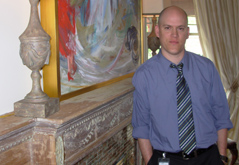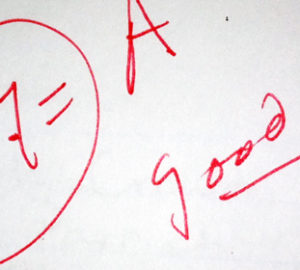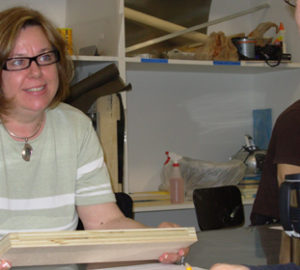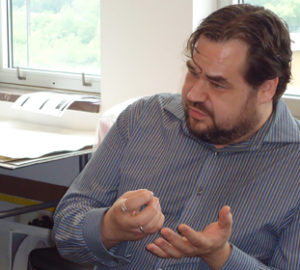
In writing classes, there are plenty of students that can write competently, and there are many students that can complete an assignment, but it is rare to find a student that can write originally, said professor of writing Darby Sanders. “ ‘A’ students aspire for excellence,” he said. “They go beyond expectations and do it on a consistent basis.”
He suggested being provocative, or “taking risks,” as professor Stephanie Batcos has said.
Sanders, from Athens, Georgia, received an M.A. in Creative Writing from Boston University, as well as an M.F.A. in Creative Writing from The University of Houston. He has received the Stanley Elkin Memorial Award for Short Fiction and won First Prize in Fiction from the Texas Association of Creative Writing Teachers. His work has been published in such journals as “Blue Mesa Review,” “The New Delta Review,” “The Colorado Review” and “West Branch.”
Sanders has been teaching for about twelve years, and he has been impressed with how much SCAD students stand out. “I’ve been at SCAD for about a year and a half. By far, I’ve had the best students and best teaching experience here,” said Sanders.
The SCAD Atlanta writing department differs from other writing programs at traditional universities in that the SCAD program offers nonfiction, creative nonfiction, writing for the web, promotional writing and a slew of other nonfiction writing classes.
Sanders said that SCAD has encouraged him to be innovative and unique in designing writing classes for undergraduate and graduate students. “We’re developing agile, well-rounded and dynamic young writers for the age of new media,” said Sanders.
In classes ranging from the current Visiting Writer class, which featured a two-week workshop and discussion with author Elizabeth Kostova, to Writing for the Web and Nonfiction I, Sanders stressed the importance of students’ exposure to all forms of writing. For him, constant learning is key to students’ success as writers, as the world continues to evolve.
Experiencing failure is common for writers, Sanders said, but learning from each experience allows students to grow and understand what needs to be changed in order to improve. He admitted that he also goes through the same cycle. His class, in most cases, offers a workshop setting that involves feedback from the entire class. “[It is] no place for ego; it’s a place to learn for everyone,” Sanders said.
“I often grade on improvement,” said Sanders. If a student has changed, grown and “worked [their] tail off,” then that student is deserving of an ‘A,’ he explained. He also said that a student may improve and grow, but not necessarily become the best writer in the class, which is part of the process — to learn, a writer must discover his or her weaknesses and strengths, to become exceptional.
“My students teach me something important about my craft and my teaching just about everyday. As a teacher, if you’re not willing to learn from the writing assignments, the reading, the discussion and the project, then you’re going to stagnate,” he said.
Sanders also explained that a common misconception about the writing community is that writers are self-indulgent and write however they want to write. However, he said, passionate, engaged writing requires time and determination.
“Oftentimes, outsiders to a writing community in general think that writers just sit around and write whatever they think or imagine.” Writing is not as simplistic as keeping a journal or diary. It takes many years of study, rigorous work and dedication to the mastery of craft, Sanders said.
“Anyone that has been in a writing class [at SCAD] can tell you that it’s very hard work. I try to motivate my students to aspire to greatness, and that’s always a challenge. We’re aiming for literature — the kind of writing that changes a person.”



























